Friendship Worksheets (2 Pages)
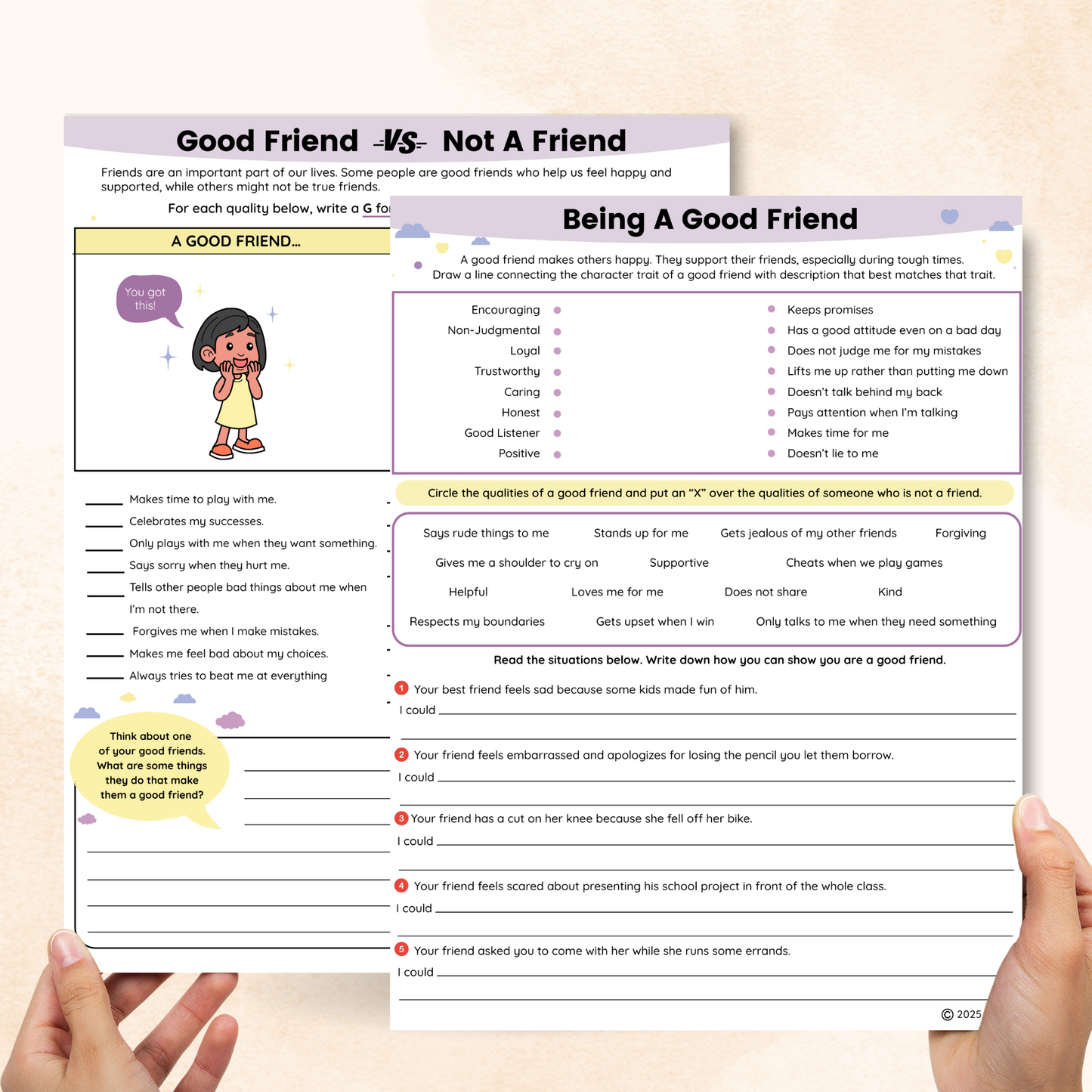
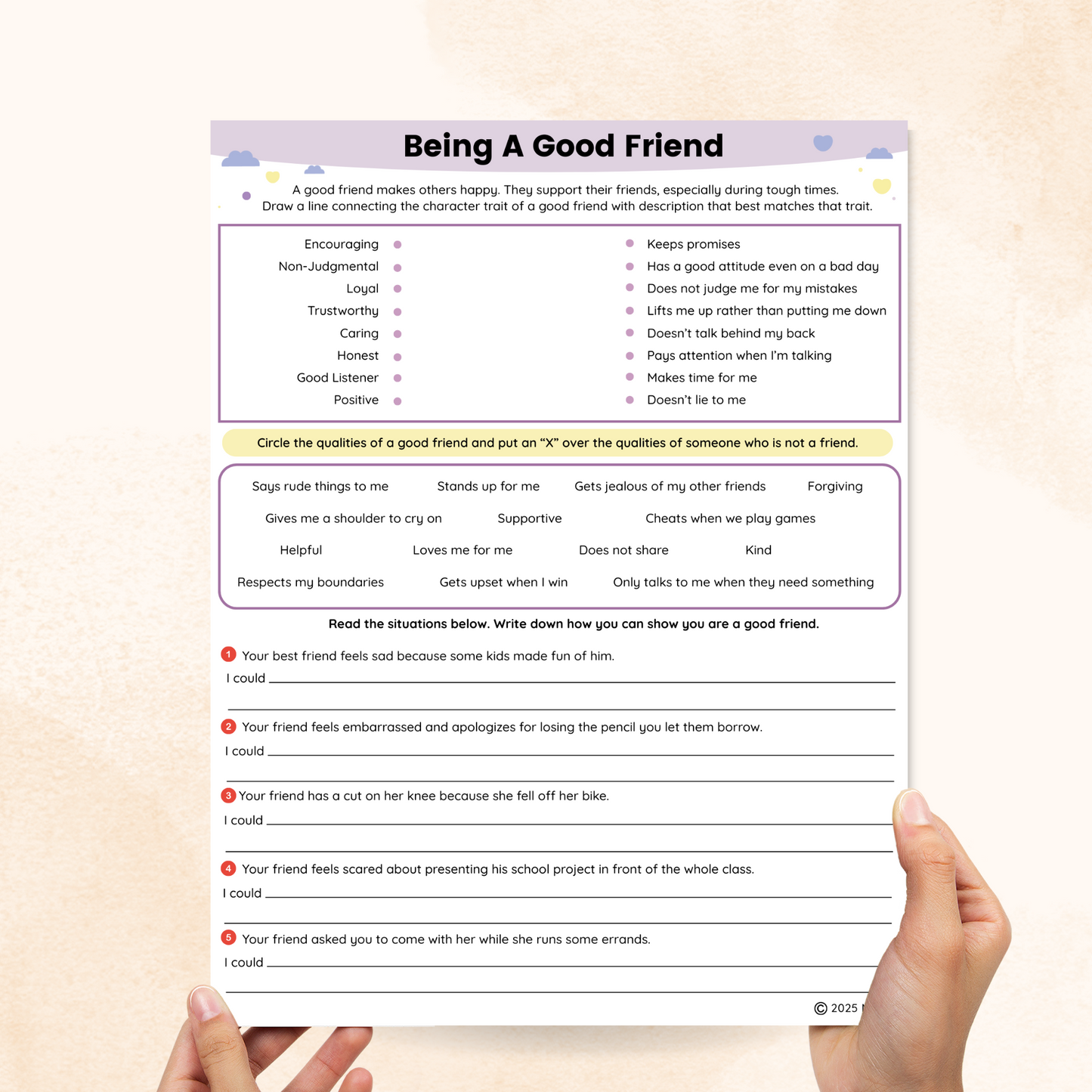
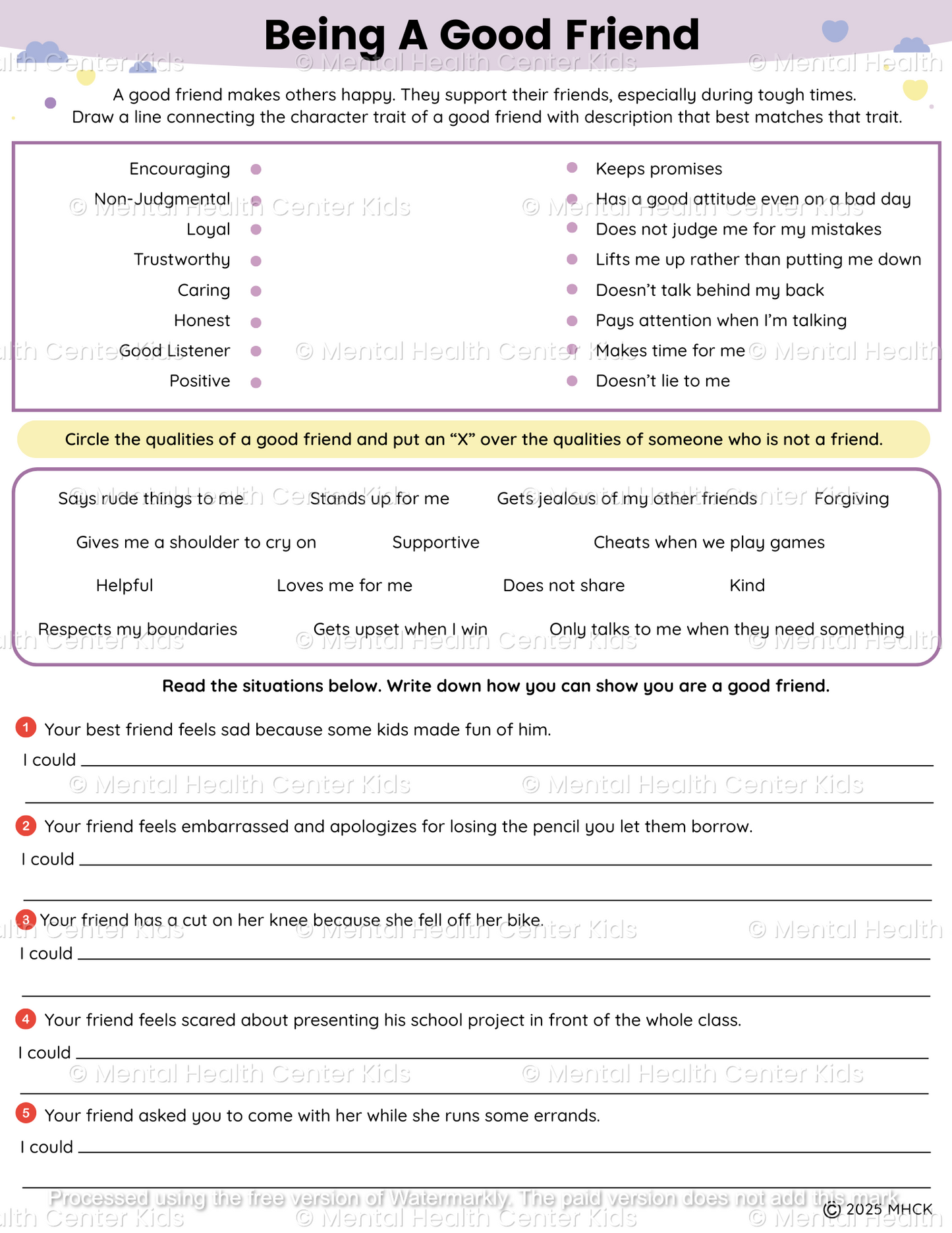
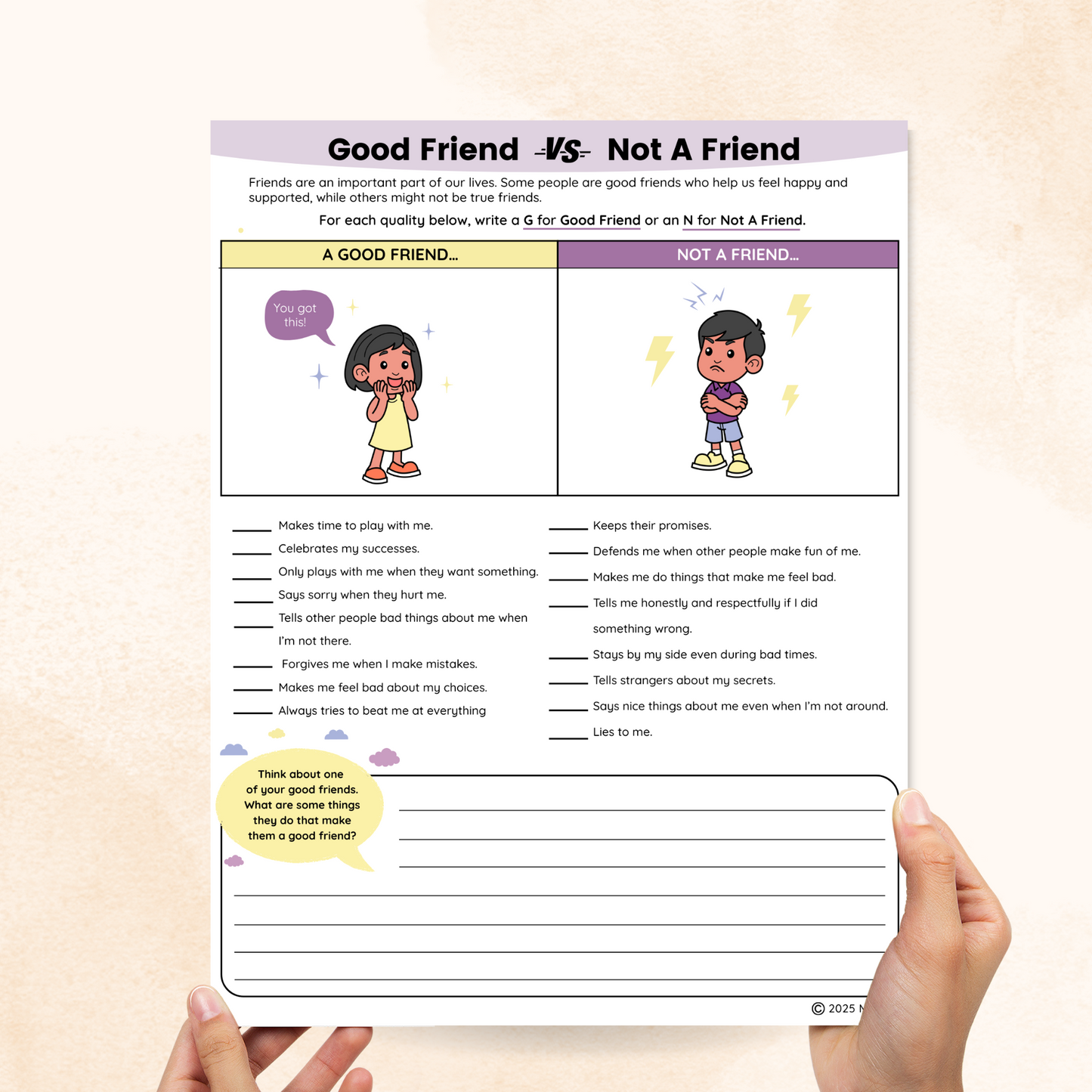
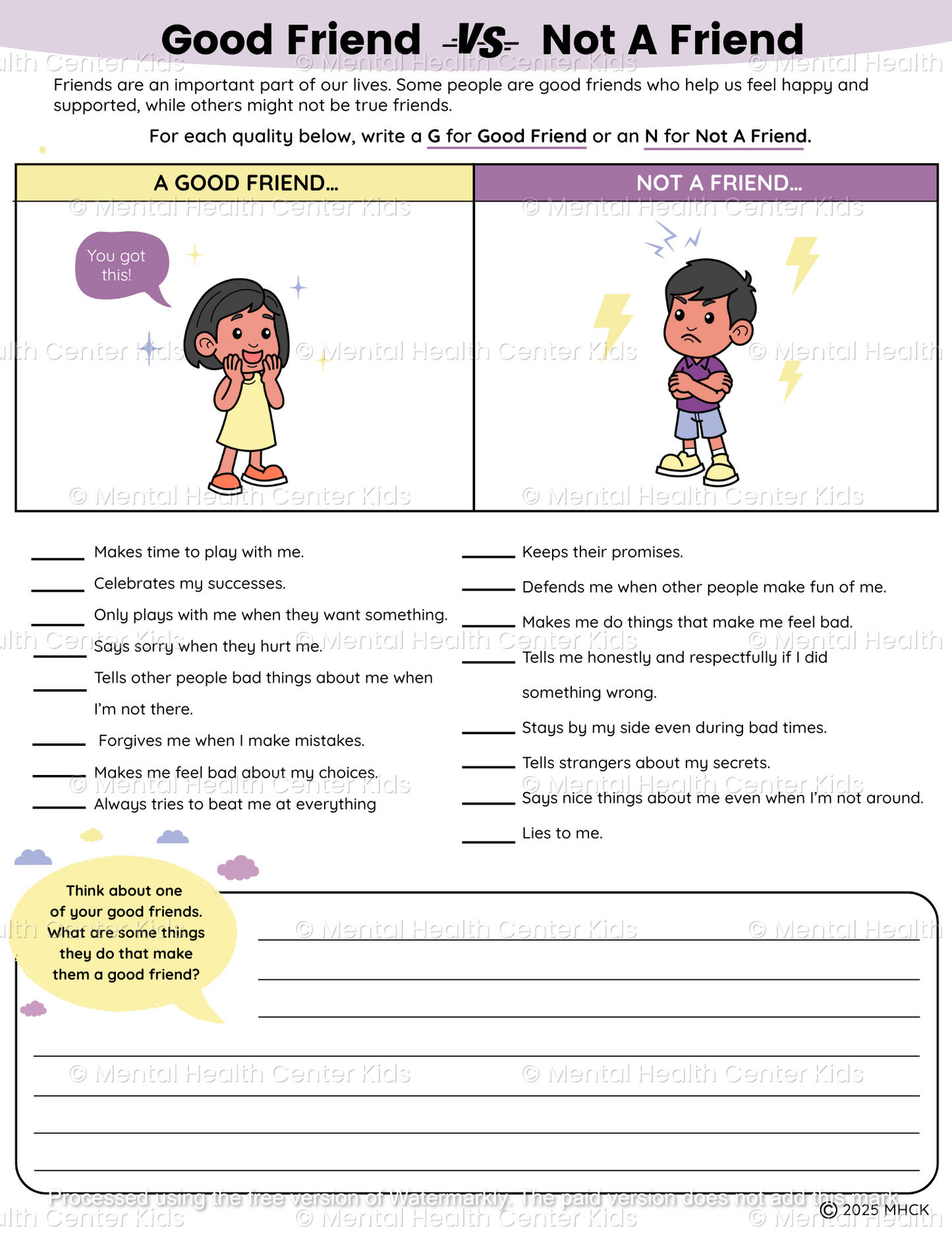

Friendship isn’t just about having fun — it’s about trust, kindness, and showing up when it matters. Being a good friend may sound simple, but it often takes thought and practice to understand what that really means. Learning about friendship in an intentional way helps young people recognize the small but powerful choices that build strong, lasting bonds.
The Friend Worksheets invite kids to match friendship traits with the right descriptions, think about how they can show up as a better friend, and reflect on a friend’s best qualities. These worksheets can be used as stand-alone activities or together as a complementary pair, and are perfect for use in classrooms, counseling sessions, or at home.
As kids and teens work through these pages, they can pause to reflect on the kind of friend they are — and the kind they want to be. They may begin to notice kind moments around them, offer small acts of support, or quietly practice new ways to care for their friends.
Caring adults can support this learning in simple ways, such as setting up a simple “friendship jar” at home or school where they can drop in notes recognizing kind or thoughtful moments they notice in others.
Feel free to explore our Being A Good Friend handout to support the activities on these worksheets.
*This item is an instant digital download. A link to download your files will be emailed to you once payment is confirmed.
Want more resources like this? Check out our full catalog of social skills worksheets.
References:
- Laursen, B. (2017). Making and keeping friends: The importance of being similar. Child Development Perspectives, 11(4), 282-289. https://doi.org/10.1111/cdep.12246
- Philip, K., & Spratt, J. (2010). Choosing your friends: Young people negotiating supporting relationships. Advances in School Mental Health Promotion, 3(1), 42-51. https://doi.org/10.1080/1754730x.2010.9715673
- Walker, D. I., Curren, R., & Jones, C. (2016). Good friendships among children: A theoretical and empirical investigation. Journal for the Theory of Social Behaviour, 46(3), 286-309. https://doi.org/10.1111/jtsb.12100
- Instant digital download - 2 Pages
- File: Fillable PDF
- Size: 8.5" x 11"







